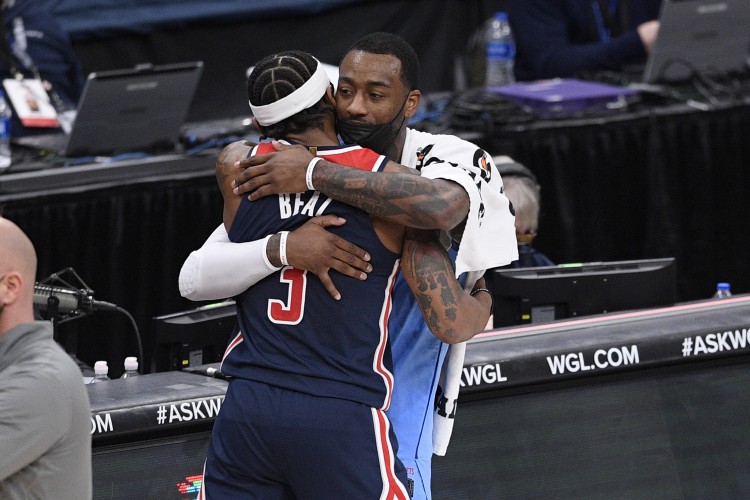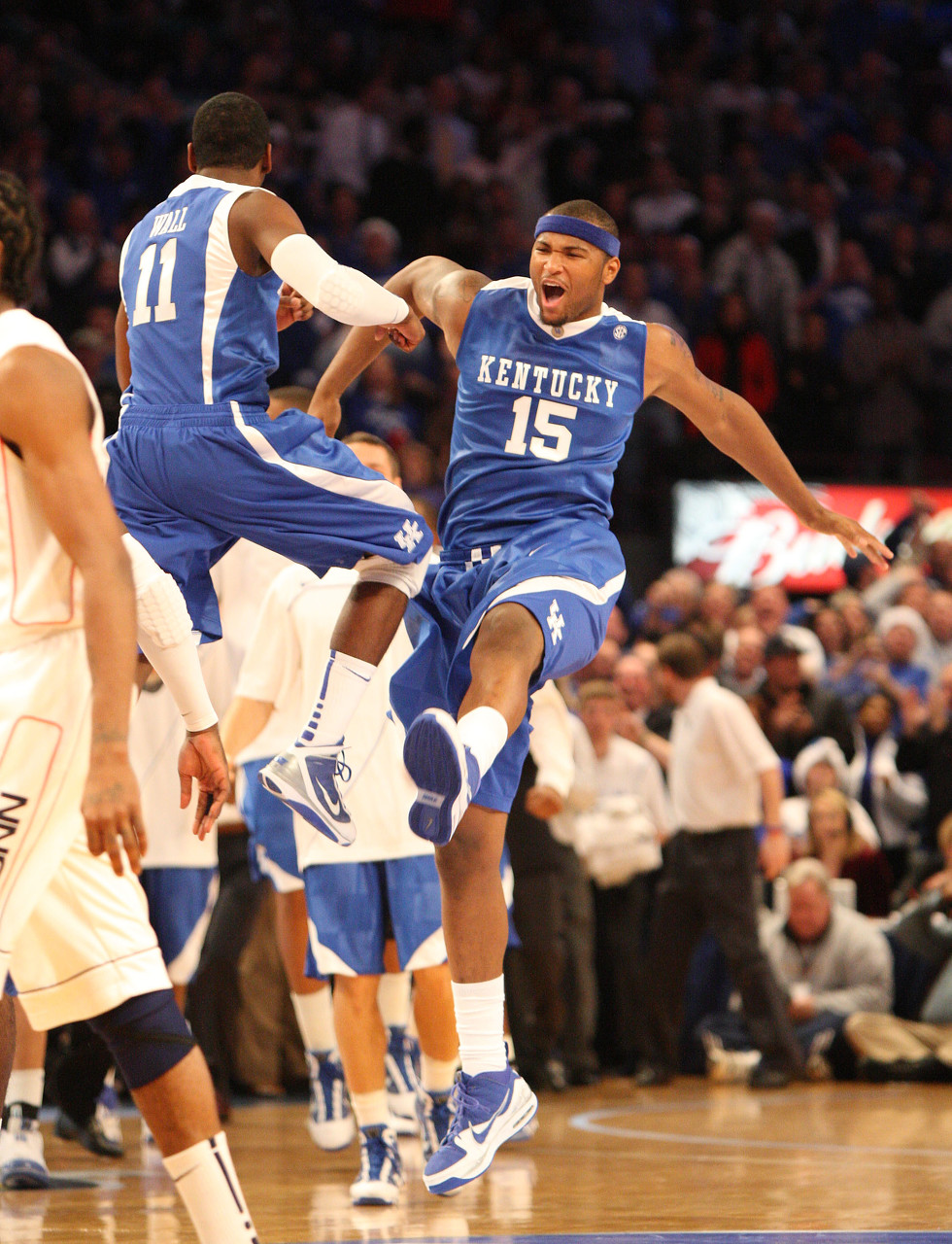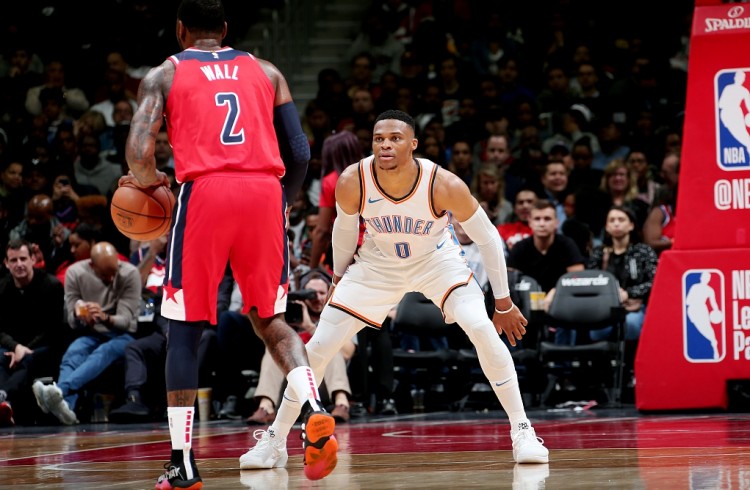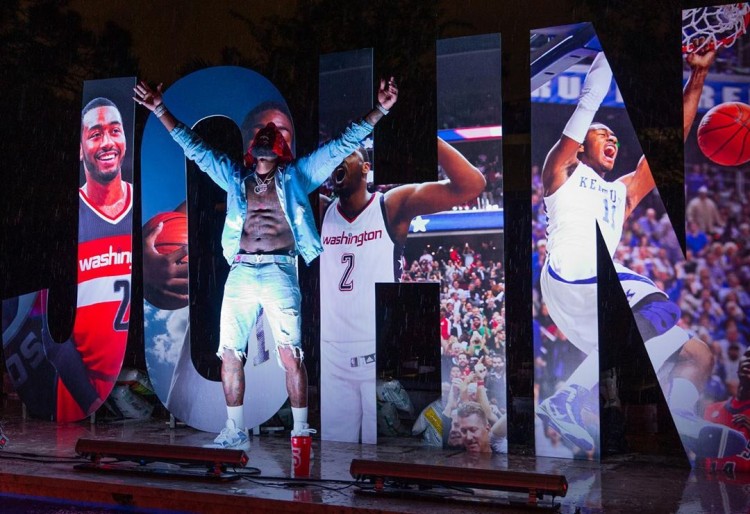
I believe everyone woke up this morning and saw the news from 23:00 last night: "According to ESPN famous reporter Shams Charania, 2010 NBA No. 1 pick John Wall announced his retirement from the basketball industry and ended his 11-year NBA career."
Wall is now 34 years old and 348 days old. He has the 2010 top pick, retired in 2025, and his 2011-year NBA career. If you look carefully, you will find that it was 15-year NBA career that was missing for 4 years. The ups and downs and helplessness are self-evident.
In December 2018, Wall was reimbursed for a season due to a left heel injury; in January 2019, Wall underwent left heel surgery; Wall slipped in the bathroom during his home recovery period, causing a rupture of the Achilles tendon - two major injuries. Wall played a total of 32 games in the 2018-20 season, missing the entire 2019-20 season due to injury, and injuries also became the turning point in Wall's career.
On December 3, 2020, the Wizards sent Wall to the Rockets; on June 29, 2022, Wall officially reached a buyout with the Rockets, joining the Clippers after the clarification period ended; on February 10, 2023, Wall was traded back to the Rockets; on February 12, 2023, Wall, who was second to the Rockets, was laid off again.
The champion of the 2014 All-Star Dunk Contest, the five All-Stars, the second team of the best defensive team in 2014-15, the third team of the best team in 2016-17, the peak season of the regular season averaged 23.1 points, 10.7 assists and 2.0 steals, the highest single-game career 52 points, and the average 27.2 points, 10.3 assists and 1.7 breaks in the 2017 playoffs. The actual "East Control" in the 2013-18 season was seriously injured and twice cut, with peaks and troughs, and fate played a big joke with Wall.

Wall is the pride of Kentucky University. He conquered fans with his "passing-first leader point guard style" and was elected the No. 2010 pick without any suspense.
Wall quickly became the core of the Kentucky Wildcats as a freshman, averaging 16.6 points, 4.3 rebounds and 6.5 assists per game. The highest 16 assists in a single game set a Kentucky record, and 241 assists in a single season set a record for Kentucky's assists in a single season, and the number one pass is the leader core.
He has won all major Southeastern League awards, Southeastern League Best Rookie + Player of the Year + MVP of the Southeastern League Championship, and was also selected as the NCAA's first team, and was elected as the Adolf Rupp Award, Oscar Robertson Award, John Wooden Award, and Bob Cousy Award. He is worthy of the most dazzling player in the NCAA's 2009-10 season.
Wall's draft general review scored 10 points in four aspects: athletic ability, body size, speed and potential. The sprint of 3/4 was 3.14 seconds, and the speed of 100 meters was 10.3 seconds. The first step was the top explosive power. The draft templates were Ross and Westbrook, which were speed guards mainly based on breakthroughs. Wall is also athletic, with 99 cm assists and 208 cm wingspan with significant advantages in defense and steals.
Wall's body shape, athletic ability, defense, pass control, and ball business vision are all top-notch. In addition to projection, Wall in college had the cornerstone talent that was essential to the NBA in the No. 1 position.

Wall was at his peak when he debuted, and he had both offense and defense. He became the actual "East Control" in the 2013-18 season.
Wall rookie averaged 37.8 minutes per game, contributing 16.4 points, 8.3 assists and 1.8 steals per game. Since entering the industry, he has been trained by the Wizards as the absolute core. The only drawback is the three-pointer. His rookie averaged only 29.6% of his three-point shooting percentage per game in the season, and he can only make 0.5 three-pointers per game. He has low efficiency and low output, and his style of playing is biased towards a typical point guard who has no three-pointers.
Even without stable three-pointers, Wall still maintained averaging at least 16 points, 7 assists and 1.3 steals per game in the first three seasons of his career. Breakthrough, defense and organization guaranteed his lower limit of the game.
In the 2013-14 season, Wall focused on polishing three-pointers. His average three-point shooting percentage soared from 26.7% in the previous season to 35.1%, and his average three-point shooting percentage increased from 0.2 to 1.3 - both efficiency and output increased. Wall was selected as an All-Star for the first time in his career and led the team to the playoffs in the fourth grade.
In the 2013-18 season, Wall was selected as the All-Star for five consecutive years, including the All-Star second team (2014-15) and the All-Star third team (2016-17). He led the team to the playoffs in five years. He averaged 27.2 points and 10.3 points per game in the 2017 playoffs and 26.0 points and 11.5 assists per game in the 2018 playoffs. At that time, Irving, Wall, Lowry and Teague in the Eastern Conference competed for the All-Star seats together, and Wall's personal leadership cap was the highest among these four players. Wall, who had both offense and defense, was actually the first point guard in the Eastern Conference in 2013-18 season.

Wall died rapidly due to injury in his best years. At the age of 28, his fate played the most ruthless joke with him.
Wall made a wonderful personal performance in the 2017 playoffs, averaging 27.2 points per game while also sending 10.3 assists, high scores + high assists, and 1.7 steals + 1.2 blocks per game!
In the first round of 2017, the Hawks scored 42 points, 8 assists, 4 breaks and 2 hats, leading the team to advance. A point guard leader truly achieved an integrated offense and defense, and took on dirty and tiring work.
In the 2018 playoffs, Wall averaged 26.0 points, 11.5 assists, 2.3 steals and 1.3 blocks per game. He was under 28 years old at that time. It is no exaggeration to say that Wall is ushering in his best peak period - mature, steady, offense and defense, and has a leadership role, and is worthy of "East Control".
In December 2018, Wall, 28 years old and 3 months old, was reimbursed for a season due to a foot injury. He slipped in the bathroom during surgery and suffered a rupture of the Achilles tendon.. The old injury added new injuries. Since then, Wall has gone forever and was eventually traded by the Wizards. He was cut twice by the Rockets, and fell to no ball to play.
Only Ross can empathize with Wall's experience. He was also given high hopes, proved himself, and was also traded by his parent team due to injury. Ross can still have tears of vicissitudes of 50 points in the Timberwolves, and Wall is no longer possible.
28 years old, the best years, a traditional point guard who has a combination of offense and defense, passes first, and has averaged at least 25 points, 10 assists, 1.5 steals and 1.2 blocks per game in the playoffs for two consecutive years. He has gradually faded out of the basketball circle due to injuries and has been unable to retire today. This hateful injury and fate!
source:7m en